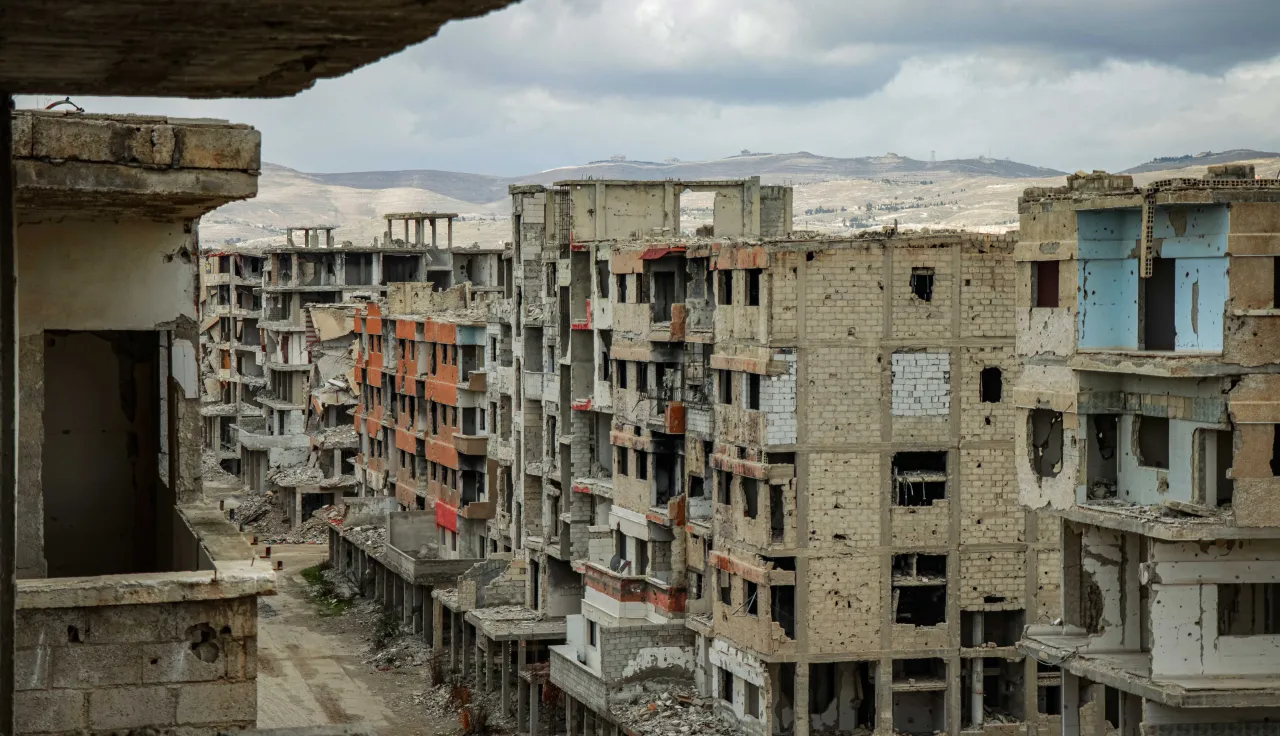ICRC president: "We are witnessing a global and collective failure to protect civilians in armed conflicts"

"Today, from the Democratic Republic of the Congo to Gaza, Sudan, Ukraine and Yemen, we are witnessing a global and collective failure to protect civilians in armed conflicts" says ICRC president Mirjana Splojaric. Statement for the first international follow-up conference to review implementation of the Political Declaration on explosive weapons in populated areas on Tuesday 23 April 2024 in Oslo (Norway).
The human toll of these wars, exacerbated by the use of heavy explosive weapons in populated areas, is unacceptable.
Heavy explosive weapons put at risk everyone – children, women and men – and everything – homes, schools and hospitals – within their wide impact areas often extending well beyond their target. In urban environments where military objectives, civilians and civilian objects are commingled, the results are devastating. The ICRC teams on the ground have seen scores of civilians killed or injured, often left with permanent disabilities or serious mental trauma. Cities are reduced to rubble, with homes, infrastructures, schools and cultural sites destroyed. People's means of earning a living are wiped out. Services essential for human survival collapse, leaving entire populations without access to water, sanitation, electricity or health care – causing more death and disease, triggering displacement and setting development back decades.
The ICRC has witnessed the human cost of war and heavy explosive weapons rising over the past two years. It has become intolerable.
Importantly, it raises serious questions about how states and non-state armed groups using such weapons are interpreting and applying the rules of international humanitarian law (IHL) that govern the conduct of hostilities.
These IHL rules are all about protecting civilians from the deadly dangers of hostilities. They stem from the cardinal principle of distinction that requires all parties to a conflict to distinguish at all times between the civilian population and combatants, and between civilian objects and military objectives. Attacks must not be directed against civilians or civilian objects, and indiscriminate attacks are prohibited.
Furthermore, the principles of proportionality and precaution afford protection to civilians and civilian objects against the danger of being incidentally harmed by attacks against military objectives. In the conduct of military operations, constant care must be taken to spare the civilian population and civilian objects. Attacks are prohibited when they may be expected to cause incidental harm to civilians and civilian objects that would be excessive or could be avoided or minimized.
And yet, we see exceptions to IHL being made that strip entire categories of people of their protection. We see transactional and reciprocal arguments invoked in an attempt to justify unacceptable interpretations of proportionality, feasible precautions not being taken and other non-compliant behaviors. We see military necessity being increasingly emphasized to the detriment of sparing civilian lives, with far too little regard being paid to the protective purpose of IHL. As parties to armed conflicts interpret these tenets of international humanitarian law with increased elasticity, they set a dangerous precedent with tragic consequences for all.
On the contrary, these principles and rules must be faithfully complied with at all times by all parties in all armed conflicts, including when using explosive weapons in populated areas.
In this respect, we commend the Political Declaration on Explosive Weapons in Populated Areas for stressing the importance of full compliance with IHL as a means to protect civilians and civilian objects and to avoid, and in any event minimize, civilian harm.
While there is no general prohibition under IHL against using heavy explosive weapons in populated areas, their use in these areas is very likely to have indiscriminate effects, and, depending on the circumstances, IHL rules may well prohibit such use. This underpins the long-standing call by the ICRC and the broader International Red Cross and Red Crescent Movement to all states and non-state armed groups that are parties to armed conflicts to avoid the use of heavy explosive weapons in populated areas. These weapons should not be used in populated areas unless sufficient mitigation measures can be taken to limit their wide area effects and the consequent risk of civilian harm.
In this regard, the declaration is a groundbreaking achievement. It acknowledges the profound suffering inflicted by these weapons and is the first instrument expressly committing states to curb their use.
The declaration recognizes that, beyond compliance with the law, effectively protecting civilians requires states and parties to armed conflicts to review and improve national policy and practice with regard to the protection of civilians during armed conflict involving the use of explosive weapons in populated areas.
The ICRC welcomes this political commitment. The daily reminders from around the world of the devastation caused by urban warfare highlight the declaration's relevance and urgency. However, in the reality of armed conflicts, we must soberly acknowledge that the declaration's life-saving potential will only materialize if:
- all endorsing states implement the declaration – in letter and spirit
- all parties to armed conflict, including non-state armed groups, fully adhere to its commitments, and
- all warring parties interpret IHL, including its rules on the conduct of hostilities, in good faith, as the protective body of law it is meant to be.
Words matter. Political pledges matter. Yet they offer scant consolation to civilians worldwide enduring the horrors of bombardment. What is urgently needed is tangible, on-the-ground change. We call on you all to take concrete steps, here in Oslo and when back in your capitals, to make this change.



